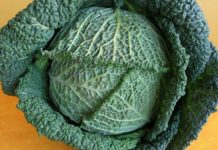
Squash is a favorite of many gardeners and a delicacy for chefs. There are several types of squash and they are easy to grow. When it comes to output of the crop, squash is known for its productivity. In different parts of the world, they are often called pumpkins or marrows and they are usually comparable to gourds as they are part of the same family.
In the United States, they are referred to as summer or winter squash, depending on the type and maturity when they are harvested and the length of time they keep, not their season for growth. Both kinds are planted in the spring and harvested through the summer and early fall. Winter squash keep throughout the winter (thus the name), while summer squash must be used or stored appropriately after harvesting. The variety of squashes makes for a delicious side dish regardless of taste. Squash is known as a vegetable, but it is really a fruit because it has seeds inside.
Summer Squash
Squashes that fall into the summer category include pattypan, sunburst, chayote, opo, and the all popular zucchini, crookneck and yellow squash. Summer squashes are perishable, so they need to be used or stored shortly after harvesting while they are still tender. They are usually harvested when they are immature because of this.
The seeds and skins of summer squash are edible making it easy to cook and suitable for eating raw. Steaming, sautéing, boiling, baking, grilling, and frying summer squash are common ways to fix summer squash. It is also added to casseroles and soups as well as grated and baked in breads, muffins and cakes. It adds variety to the normal potatoes and carrots that traditionally accompany roasts. Used raw, summer squash is a wonderful appetizer to be served with dips or it can be added to sandwiches and salads.
Winter Squash
Winter squash is not as popular as summer squash, but it will definitely add variety to your diet. There are many types of winter squash with the most popular being the acorn, banana, buttercup, butternut, and spaghetti squashes. Unlike summer squashes, winter squashes are not highly perishable so they can be kept in a cool place for a long time, well into the winter. They are not harvested immature, but rather when they are fully mature and ripe.
The hard seeds and thick skins of winter squash have to be removed before eating the squash and it isn’t appropriate to eat raw. Winter squash is sweeter than summer squash which makes it perfect for sweet dishes seasoned with butter and cinnamon, or your favorite spice like ginger or cloves. Brown sugar or honey is a perfect complement to winter squash. They are also used in desserts such as puddings, pies, cakes, and muffins. The spaghetti squash is quite original with its spaghetti-like strands and it is often used as a substitute for the pasta-type spaghetti. Winter squash is frequently used as fall decorations.
Raising Squash
When planting squash, be sure to consider that squash plants require a lot of area to grow because they vine out instead of growing up. They can easily take over your garden if you’re not careful. Make sure that they have plenty of space to flourish, as they will. They need plenty of exposure to sunlight, so consider this in picking their space in the garden. The soil for growing squash needs to well-drained and fertile with lots of organic matter added.
Squash can be planted in early spring, after the last frost, or as late as midsummer. They can be planted from seed or transplants. If starting from seeds, sow at least three seeds together about three feet apart. This will give a single plant plenty of room to grow. Retain the same spacing if planting transplants.
Caring for squash is fairly easy. You need to water the plants about once a week when it is dry. Keep weeds out of the garden by hoeing and hand-pulling. Watch for the presence of squash bugs and squash vine borers and control them by removing the bugs or eggs from your plants. Other pests that affect squash include aphids and cucumber beetles. If they become a major problem, check with a local garden center about getting an appropriate insecticide for your most troubling pests.
Squash is a wonderful addition to your garden because it grows so easily and there are a variety of ways to use squash. From the garden to kitchen, squash is a fabulous, delicious source of nutrition. Plus, winter squash is great for decorating with fall colors.





